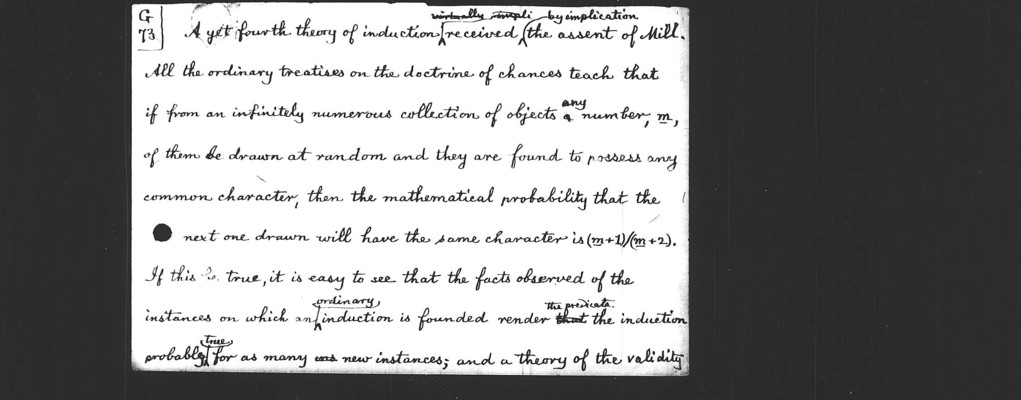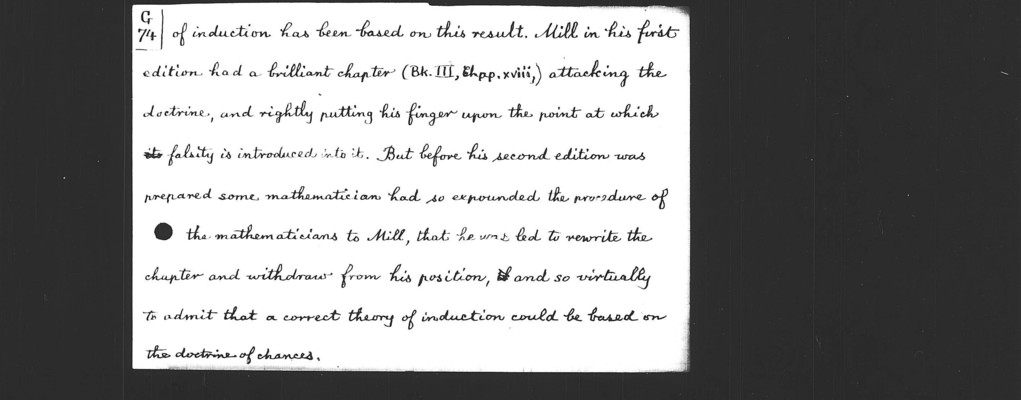Pages
131
G73
A yet fourth theory of induction received by implication the assent of Mill. All the ordinary treatises on the doctrine of chances teach that if from an infinitely numerous collection of object any number, m, of them be drawn at random and they are found to possess any common character, then the mathematical probability that the next one drawn will have the same character is (m+1)/(m+2). If this be true, it is easy to see that the facts observed of the instance on which an ordinary induction is founded render the predicate the induction probably true for as many new instances; and a theory of the validity
132
G74
of induction has been based on this result. Mill in his first edition had a brilliant chapter (Bk. III, Chap. xviii,) attacking the doctrine, and rightly putting his finger upon the point at which falsity is introduced into it. But before his second edition was prepared some mathematician had so expounded the procedure of the mathematicians to Mill, that he was led to rewrite the chapter and withdraw from his position, and so virtually to admit that a correct theory of induction could be based on the doctrine of chances.
133
G75
Now as to this mathematical theory of induction, it is to be observed that mathematics has to rest upon assumptions, or, as modern mathematicians call them, upon "hypotheses." Accordingly, those who desire to make such a subject as the doctrine of chances appear as a branch of pure mathematics, instead of first framing suitable definitions of the terms of art they deem needful, and then expressing with the aid of these terms such assumptions as seem indisputable, begin by formulating such assumptions as are requisite for the support of the developments already decided upon
134
G76
in their minds, and then so draw up their definitions, that their different terms shall mean whatever they may need to mean in order to render their assumptions impregnable. No fault ought to be found with this proceeding; for it is indispensable to a thoroughly mathematical treatment of such a subject as probability. But it renders the comprehension of a work written in terms of such unexpected meanings difficult, and throws upon the critical reader a heavy exertion of his power of logical analysis. This is all the more true when the author
135
G77
is strikingly deficient in that power, as is the case with Laplace. As for his followers, it is difficult to determine what their own powers may be, since even today there are remains of that excessive veneration for the great astronomical mathematician which caused all mathematicians of the first half-century after the completion of the Mécanique celeste to read that and the Théorie analitique des probabilités in the frame of mind of a monk studying the Summa Theologica of St. Thomas. That this is true is shown by the




